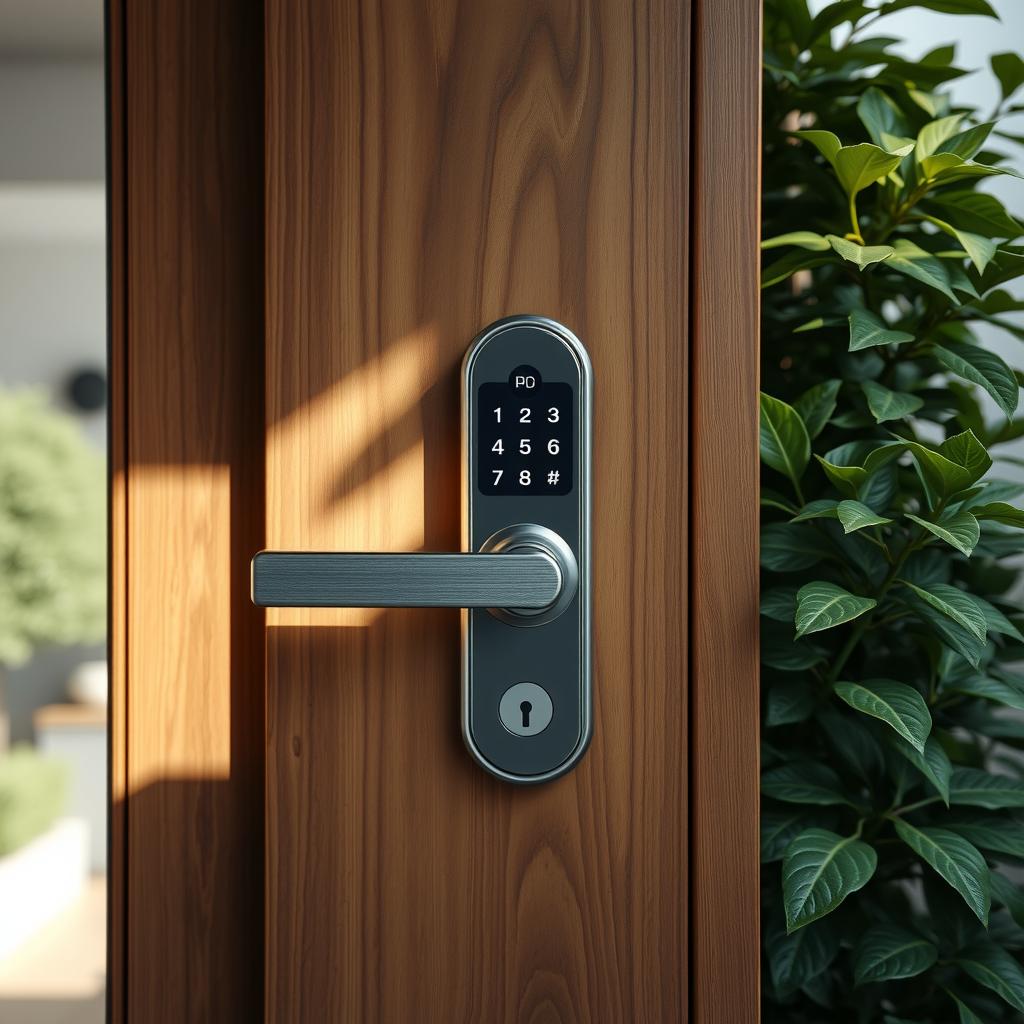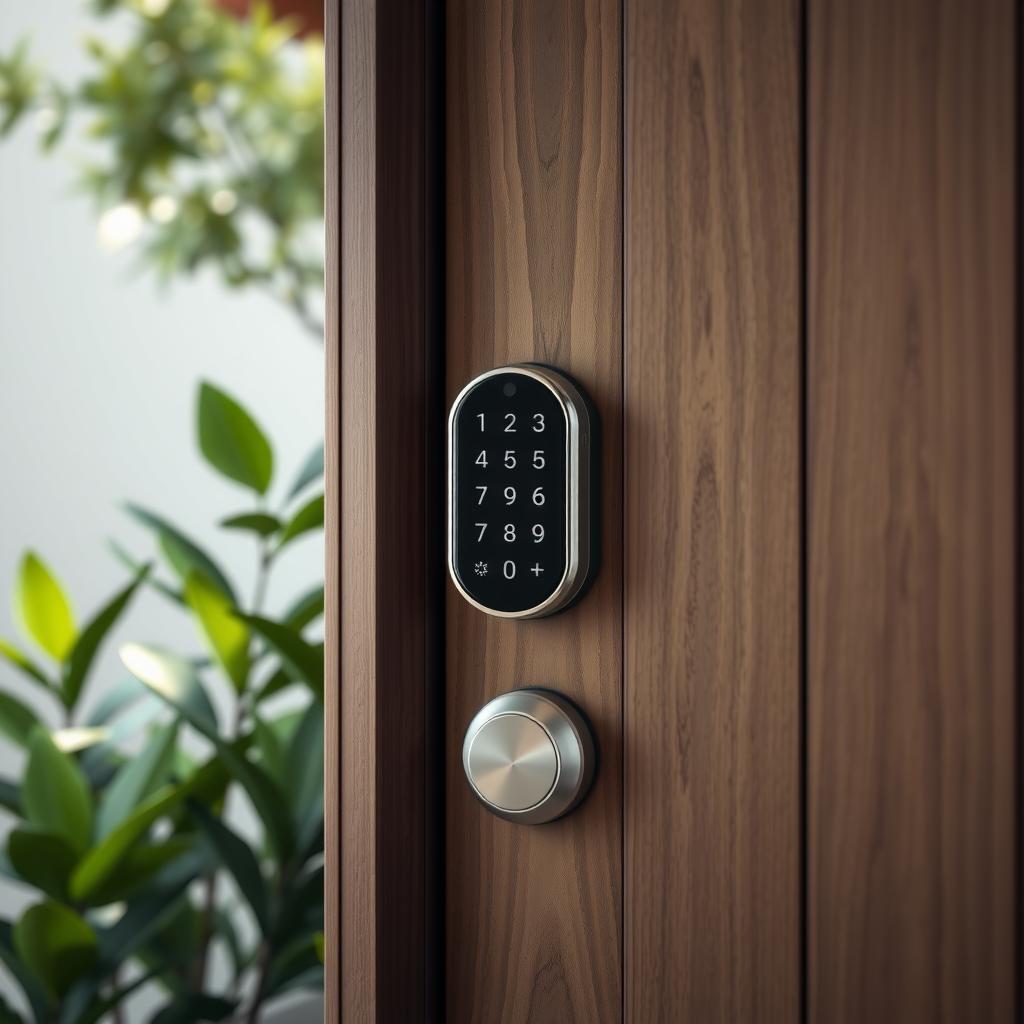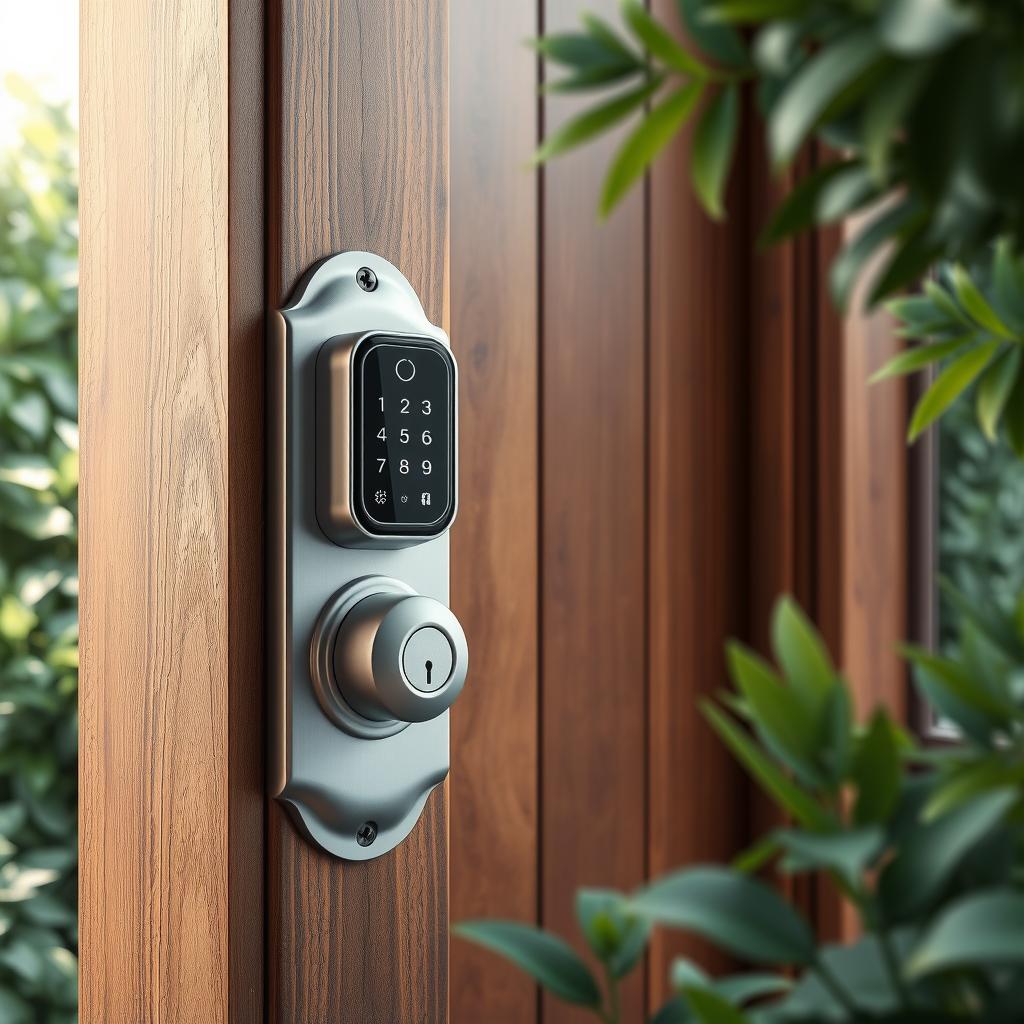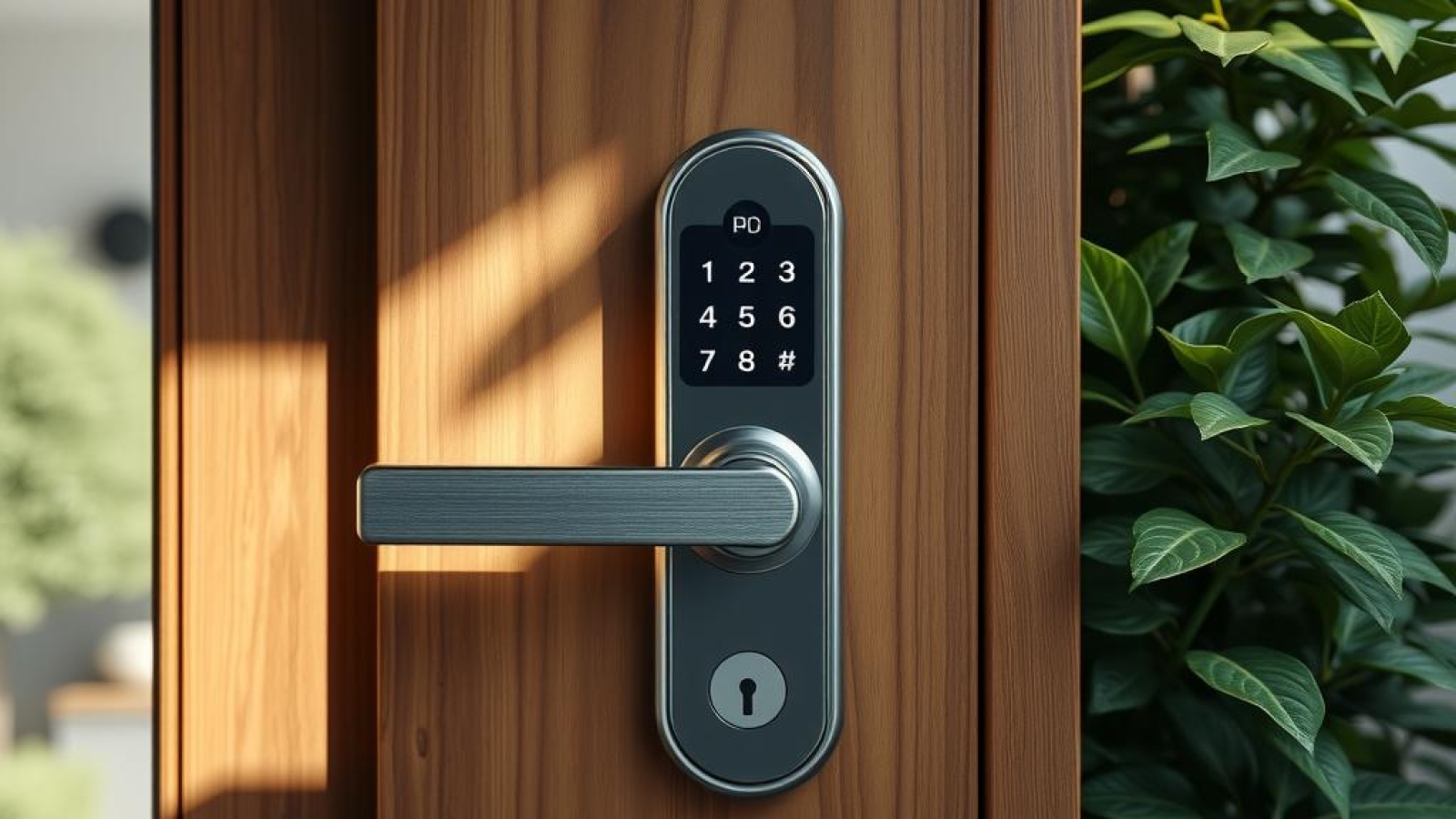In an era where smart locks have revolutionized home security, the conversation increasingly shifts towards their dependency on internet connectivity. While many consumers are drawn to the convenience and features of connected devices, concerns surrounding internet outages and reliability issues cannot be overlooked. The growing demand for robust home security solutions has prompted manufacturers to explore alternatives that ensure accessibility even in challenging circumstances. This is where smart locks with offline functionality come into play, offering homeowners a reliable option without sacrificing the benefits of modern technology.
As part of the broader category of smart locks, these innovative devices enable users to secure their homes effectively without relying solely on Wi-Fi or cellular networks. This independence from constant internet access addresses significant connectivity challenges, allowing homeowners to feel confident in their security systems regardless of external factors like power failures or service interruptions. Unlike traditional lock alternatives that may require physical keys, these advanced locking mechanisms utilize various technologies such as Bluetooth and proximity sensors, ensuring seamless operation even when online connectivity is compromised.
Moreover, adopting smart locks with offline capabilities can alleviate common fears associated with digital home security systems—namely vulnerability during unexpected outages or technical failures. As homeowners become more aware of potential cybersecurity threats alongside practical considerations about everyday use, opting for wireless locks designed for offline functionality provides peace of mind in terms of both safety and usability. These products often come equipped with features such as keypad entry or mobile app control via Bluetooth connections that continue functioning irrespective of internet status.
The evolution within smart home technology underscores a crucial shift towards flexibility and reliability in residential security measures. With an increasing number of households investing in high-tech solutions for enhancing their safety protocols, understanding how different types of smart locks can operate independently offers valuable insight into making informed purchasing decisions. Homeowners seeking dependable options will find that embracing this segment not only enhances daily convenience but also fortifies against unforeseen disruptions while maintaining essential access controls throughout varying situations.
In summary, considering the importance placed on consistent accessibility paired with heightened awareness around potential vulnerabilities linked to online dependence highlights why exploring options beyond conventional methods remains vital today. Smart locks equipped for offline performance represent a progressive step toward achieving greater autonomy over one’s personal safety while addressing contemporary demands within evolving market trends.

Key points:
-
Title of the key point: Reliability Concerns
The increasing reliance on smart home technology has led to significant reliability concerns regarding the functionality of smart locks during internet outages. Many users fear that their ability to access their homes can be compromised if their wireless locks depend solely on a stable internet connection. In contrast, smart locks that offer offline functionality provide a dependable alternative, ensuring homeowners can secure and enter their residences without interruption, regardless of connectivity challenges. -
Title of the key point: Accessibility Issues
Accessibility is another critical factor when considering smart locking mechanisms for home security solutions. During unexpected internet outages, traditional smart locks may become inaccessible, leaving users locked out or unable to engage with their systems remotely. Smart locks designed with offline capabilities mitigate these accessibility issues by offering physical entry methods or local connectivity options, thereby enhancing user experience and maintaining peace of mind even in adverse conditions. -
Title of the key point: Lock Alternatives
When exploring lock alternatives within the realm of advanced security measures, it becomes essential to evaluate products that do not solely rely on digital networks for operation. The best smart locks incorporate both online functionalities alongside robust offline features; this dual approach addresses potential vulnerabilities associated with temporary disruptions in service. By opting for such versatile devices, homeowners can effectively navigate any potential problems stemming from connectivity challenges, ensuring uninterrupted protection for their properties at all times.

The Necessity of Offline Functionality in Smart Locks
Understanding the Risks of Connectivity Dependence
In an era where smart home technology is rapidly evolving, the reliance on internet connectivity has become a significant concern for users seeking reliable and secure access solutions. While smart locks offer innovative features such as remote locking and unlocking via smartphone applications, they often hinge on constant internet access to function optimally. This dependency raises crucial questions regarding their effectiveness during internet outages, which can occur due to various factors including local service disruptions or broader network failures. Homeowners must confront the reality that a temporary loss of connection could render these devices ineffective, leaving them vulnerable to accessibility issues when it matters most.
The implications of relying solely on connected devices extend beyond mere convenience; they touch upon fundamental aspects of home security solutions. A lock that requires an active internet connection may not provide the reliability needed during emergencies or unforeseen circumstances. For instance, if a homeowner finds themselves locked out due to a power outage affecting their Wi-Fi router or experiencing technical difficulties with their smartphone application, traditional locking mechanisms—while seemingly outdated—may prove far more reliable in those critical moments. In contrast, smart locks equipped with offline functionality can ensure continued operation without dependence on connectivity, thereby enhancing both user confidence and security integrity.
As homeowners increasingly integrate smart technologies into their living spaces, understanding potential pitfalls becomes essential for making informed choices about security measures deployed at home. By prioritizing options such as smart locks with robust offline capabilities over entirely wireless alternatives susceptible to connectivity challenges, individuals can mitigate risks associated with tech failures while maintaining peace of mind regarding safety and accessibility at all times.
Balancing Technology and Security
Why Offline Capabilities Are Essential
The landscape of residential security is continually shifting towards advanced technological solutions such as smart locks, yet this transition necessitates careful consideration regarding functionality versus dependency on external systems like the internet. As homes become smarter through interconnected devices designed for convenience and control—ranging from lighting systems to thermostats—their collective reliance on stable online connections creates vulnerabilities that could affect overall household safety protocols significantly.
Integrating offline functionality within smart locks emerges as a crucial factor in counteracting these risk-laden scenarios presented by unpredictable internet services or cyber threats targeting networks directly responsible for maintaining device operability. When evaluating potential lock alternatives designed specifically for modern households grappling with increasing levels of technology integration combined with inherent risks tied to online usage patterns—including hacking incidents—it becomes apparent how vital it is for consumers’ choices surrounding residential security tools remain grounded in practical concerns rather than simply aesthetic appeal or cutting-edge features alone.
Moreover, considering users’ varying levels of comfort navigating new technologies underscores additional layers influencing decisions around adopting high-tech solutions like wireless locks equipped solely through digital interfaces lacking backup methods accessible during crises involving lost signals: proactive strategies aimed toward ensuring seamless usability regardless present uncertainty illustrate forward-thinking design principles successfully bridging gaps between innovation-driven aspirations alongside steadfast commitment safeguarding residences against potential vulnerabilities arising from heavy reliance upon continuous network accessibility.

Understanding Security in Smart Locks
The Importance of Reliability in Offline Scenarios
When evaluating the reliability of smart locks, it is essential to consider their security features, especially during internet outages. A primary concern for homeowners integrating these devices into their security systems is how well they perform when connectivity challenges arise. Many smart locks are designed with advanced encryption methods and backup options that enhance their offline functionality. This means even without an active internet connection, they can still securely manage access through traditional key overrides or Bluetooth connections to authorized user smartphones. However, potential users must be aware that not all models offer the same level of protection against unauthorized access when offline; thus, understanding the specifications and limitations of each model becomes crucial in selecting a secure home security solution.
Accessibility Matters
Ensuring Everyone Can Use Smart Locks
Accessibility issues play a significant role in the effectiveness of smart locks as part of any comprehensive home security strategy. While modern technology aims to simplify entry processes—often allowing remote control via mobile apps or voice commands—there remain critical considerations for individuals who may not have consistent access to these technologies. For instance, some users might find themselves locked out due to battery failures or difficulties using wireless locks if there are internet outages. Therefore, ensuring that smart locks provide alternative physical entry methods—such as keypad codes or mechanical keys—is vital for accessibility across different user demographics.
Ease of Use: A Key Feature
User Experience with Smart Lock Technology
The ease-of-use factor significantly influences consumer adoption rates among various home automation solutions like smart locks. A system that requires extensive setup procedures may deter potential users from fully integrating smart home technology into their lives. Conversely, intuitive designs featuring straightforward installation processes and simple operational interfaces enhance overall user satisfaction while fostering trust in the device’s reliability during connectivity challenges such as internet outages. Homeowners should also seek systems offering seamless synchronization between multiple devices and platforms since this functionality can greatly simplify day-to-day operations while providing peace-of-mind regarding overall home security solutions.
Addressing Reliability Concerns
Overcoming Connectivity Challenges with Smart Locks
Reliability concerns often arise when discussing wireless technology integrated within residential settings; however, manufacturers continue developing innovative approaches to ensure proper functionality despite connectivity challenges inherent within digital environments. Advanced research has shown that many contemporary smart locks now incorporate robust mechanisms designed specifically for scenarios involving intermittent network coverage or complete loss thereof due primarily to power interruptions associated with severe weather conditions affecting internet service providers’ infrastructure on occasion. Additionally, adopting lock alternatives equipped with dual-mode capabilities allows homeowners greater flexibility by providing both electronic locking features alongside traditional key access – thereby enhancing resilience against prevalent issues surrounding online dependencies experienced through most conventional smart products available today.
The Future Landscape for Smart Locks
Innovations Shaping Home Security Solutions
The future landscape for smart locks appears promising as ongoing advancements continue addressing core aspects such as enhanced security measures paired seamlessly with improved usability profiles tailored towards diverse audiences seeking efficient yet dependable options amidst evolving technological landscapes marked by increasing reliance on interconnected devices shaping our daily routines at unprecedented levels previously unimagined only years ago prior emerging trends began gaining traction across various segments spanning global markets focused mainly upon delivering cutting-edge innovations enhancing practical applications found throughout everyday life experiences facilitating development opportunities ripe exploring untapped potentials awaiting discovery paving pathways toward transformative breakthroughs likely redefining standards established pertaining effective implementation feasible strategies emphasizing importance maintaining balance promoting safety prioritizing accessibility ensuring everyone benefits equally from advantages brought forth harnessing full spectrum possibilities afforded leveraging intersectionality connecting realms merging tradition progress creating environments conducive flourishing lifestyles nurtured confidence built around core values underpinning reliable choices made securing sanctuaries cherished families homes everywhere today tomorrow beyond.
Top Smart Locks Without Internet Dependency
Ensuring Security and Convenience During Outages
In an increasingly connected world, the reliance on internet-connected devices can pose a risk during outages or connectivity challenges. Smart locks designed with offline functionality serve as reliable home security solutions that prioritize accessibility without compromising safety. These innovative locking mechanisms allow users to maintain access control to their homes even when the internet is down, addressing reliability concerns common in traditional smart home technology. One exemplary model worth mentioning is the August Smart Lock Pro, which combines Bluetooth capabilities with robust encryption, allowing homeowners to lock and unlock their doors seamlessly via smartphone apps, all while functioning independently of Wi-Fi networks. This feature proves particularly advantageous during unexpected power failures or internet outages.
The Benefits of Offline Functionality
Streamlined Access Control Without Compromise
The primary advantage of choosing smart locks that operate offline lies in their ability to eliminate dependency on constant connectivity for everyday use. For instance, many modern wireless locks still offer keyless entry options through physical keys or keypad entries—providing backup methods should technological hiccups arise. The Yale Assure Lock SL, another noteworthy mention, empowers users with multiple unlocking methods including PIN codes and physical key access; thus sidestepping potential accessibility issues associated with complete reliance on mobile applications. Additionally, these smart locks often come equipped with customizable features like temporary guest codes that can be programmed directly into the device itself—a significant enhancement for those who frequently host visitors but wish to maintain strict security protocols.
Addressing Reliability Concerns
A Secure Choice Amidst Connectivity Challenges
Reliability remains a pivotal factor when considering any locking mechanism for home security purposes. With growing concerns about cyber threats targeting IoT devices—including vulnerabilities in some wireless locks—opting for a product like the Kwikset Halo Smart Lock exemplifies a proactive approach towards safeguarding one’s property against both digital attacks and physical intrusions alike. This particular model offers advanced encryption standards alongside local operation modes which ensure full functionality regardless of any external connectivity issues encountered by users throughout their daily lives. By investing in such smart locks, homeowners effectively mitigate risks associated not just with hacking attempts but also from unfortunate events such as blackouts where conventional systems might falter.
Exploring Alternative Solutions
Versatile Options Tailored for Every User’s Needs
Exploring alternative solutions within the realm of secure entry points yields numerous options tailored specifically toward diverse user needs while maintaining high-security standards linked to effective performance under varied scenarios involving limited tech support or infrastructure limitations caused by fluctuating network conditions—thus enhancing overall peace-of-mind regarding personal safety measures taken at home settings today! Models like Schlage Encode are illustrative examples here: they provide built-in Wi-Fi capability yet retain basic operations without requiring continuous online connections after initial configuration adjustments are made successfully by respective owners themselves post-installation phase completion appropriately handled beforehand leading up until final usage moments commenced thereafter subsequently enjoyed fully thereafter afterward continuously reflecting maximum satisfaction levels experienced routinely within residential environments nationwide!
In recent years, the demand for smart locks has surged as homeowners seek advanced home security solutions that integrate seamlessly with their daily lives. However, many users have raised concerns about internet outages impacting the reliability of these devices. Fortunately, several models of smart locks offer offline functionality, ensuring that access to one’s home remains uninterrupted even during connectivity challenges. These lock alternatives utilize Bluetooth technology or keypad entry systems that do not rely on an internet connection, thus addressing accessibility issues while maintaining robust security.
One standout example in this category is the August Smart Lock Pro, which allows users to enter their homes using a traditional key or a smartphone app via Bluetooth when internet access is unavailable. This dual-functionality reassures users during potential internet outages since they can always resort to physical keys if needed. Moreover, features such as auto-lock and remote management are available when online but do not hinder basic operations during connectivity disruptions.
Similarly, the Yale Assure Lock SL provides excellent offline functionality by enabling code-based entry through its user-friendly keypad interface. Users can program multiple codes for family members or trusted visitors without needing an active internet connection at all times. This feature addresses reliability concerns often associated with smart home technology by emphasizing secure yet straightforward methods of accessing homes without being dependent on wireless networks.
Common Questions:
Q: How reliable are smart locks during internet outages?
A: Many modern smart locks are designed with offline functionality in mind; therefore, they remain operational even without an active internet connection. Options like keypad entries and Bluetooth-enabled mechanisms ensure accessibility despite any connectivity challenges.
Q: What should I consider if my area frequently experiences power cuts?
A: Homeowners concerned about frequent power cuts should look for smart locks equipped with backup options such as physical keys or battery-operated systems that maintain full operation regardless of external conditions—including those affecting online capabilities.
Q: Are there any specific models known for better performance during connectivity issues?
A: Several models stand out due to their enhanced offline capabilities; for instance, products like the *Kwikset Kevo Smart Lock 2nd Gen allow traditional key usage alongside mobile control via Bluetooth—proving effective against both reliability concerns and accessibility issues related to lost connections.

Add a Comment